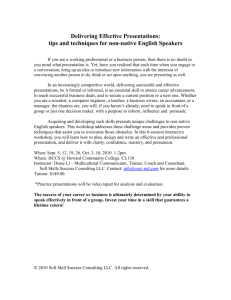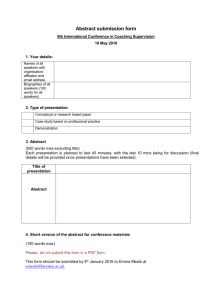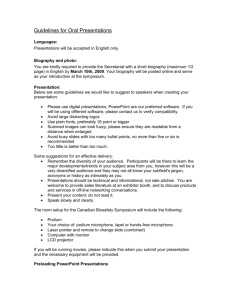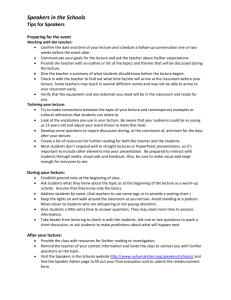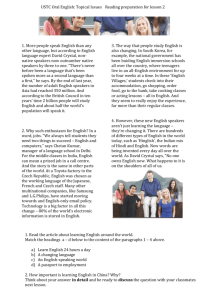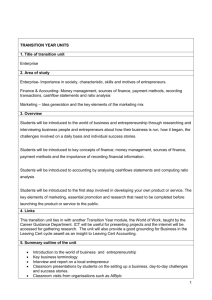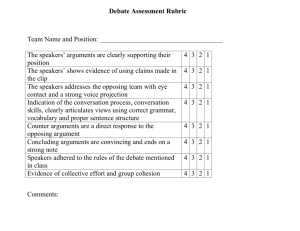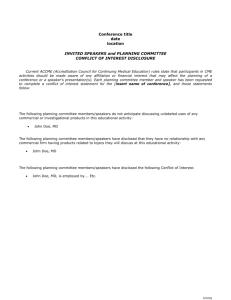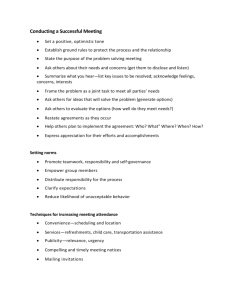Academia 2 0 Evaluation results compiled
advertisement
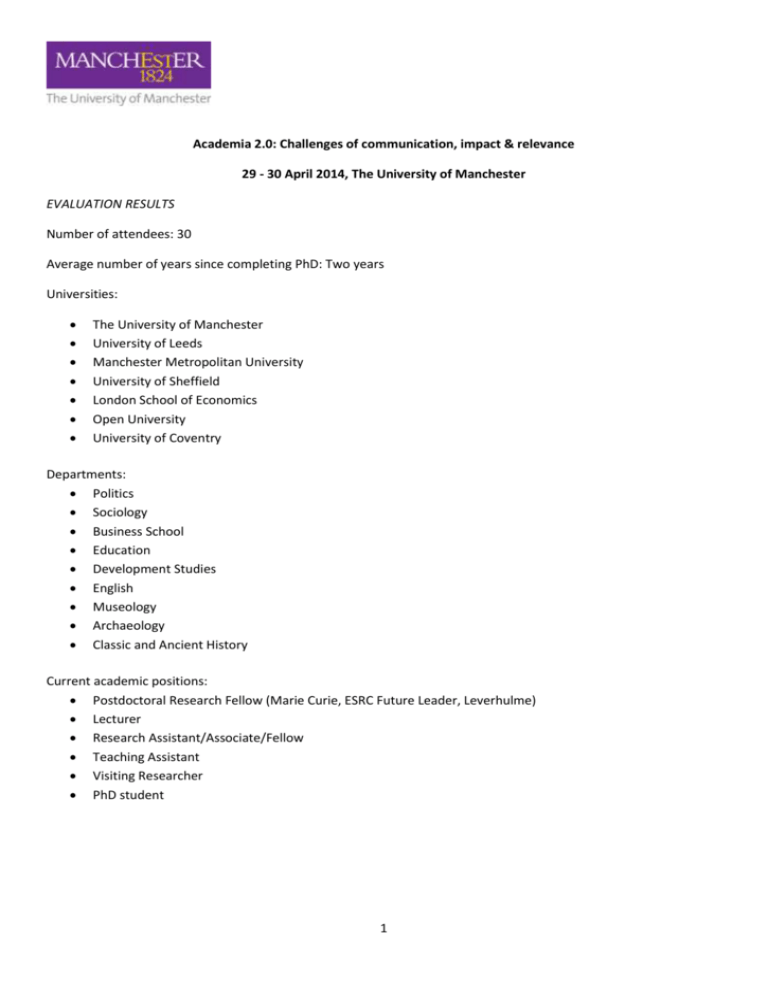
Academia 2.0: Challenges of communication, impact & relevance 29 - 30 April 2014, The University of Manchester EVALUATION RESULTS Number of attendees: 30 Average number of years since completing PhD: Two years Universities: The University of Manchester University of Leeds Manchester Metropolitan University University of Sheffield London School of Economics Open University University of Coventry Departments: Politics Sociology Business School Education Development Studies English Museology Archaeology Classic and Ancient History Current academic positions: Postdoctoral Research Fellow (Marie Curie, ESRC Future Leader, Leverhulme) Lecturer Research Assistant/Associate/Fellow Teaching Assistant Visiting Researcher PhD student 1 What participants enjoyed most about the conference (top three): Diversity and quality of speakers and their presentations Themes for the different sessions Panels on “Impact” and “Relevance” in particular “The conference was dynamic, highly informative and inspiring, as well as being well-organised and structured. I attended all the sessions on the first day and found each session stimulating and helpful. Talks that presented specific details of past and current research were especially effective and interesting; in particular, those presentations by Stephanie Barrientos, Martin Scott, Jane Tate, Yaron Matras, Uma Kothari and Cecilia Wong. I was impressed by these speakers’ energy, thoughtfulness and passion (not what I was expecting from presentations on ‘impact’). Related to this, I was struck by what almost became a recurring motif throughout the day – the importance of relying on integrity and passion when undertaking any research project. A small point, but I very much liked the length of the presentations and the brisk pace generally.” What participants enjoyed least about the conference (top 3): Panel on ‘Impact’: focused only on United Kingdom and not a wider academic community, e.g. the European Union; focused on the long-term impact of research and bureaucracy which does not apply to early career researchers; discussion was uncritical; and too much focus on impact at the expense of other issues Lack of speakers from other parts of Humanities that are less focused on the Social Sciences Speakers that did not keep to their time “Some papers were irrelevant (homeworkers, the paper on religious approaches to relevance). For a conference aimed at early career researchers, there was a strong emphasis on long-term impact and the bureaucracy behind completing paperwork that simply does not apply to the context of the early career researchers who were the main audience.” On the conference meeting participants’ expectations (top three): Lots of learning Opportunity to network Too much focus on Social Science and lack of representation of the Arts “More than met my expectations - I learned a great deal about practical issues relating to impact/relevance and also felt encouraged as an ECR.” “I felt that there was too great a focus on the social sciences and that there was a distinct lack of representation surrounding the Arts, in spite of the conference being advertised as representative of Humanities as a whole.” 2 How could the conference have been improved? (top five): Include other fields in the Humanities where demonstrating ‘impact’ is more difficult Sharing information/introductions of the participants Ensuring speakers keep to their time Having an earlier start or a full second day to the programme Having working groups/discussion groups where participants can share their own experiences “This isn’t a criticism but more of a comment – I would be interested to hear from more people in my field (English, literary studies, cultural theory) for whom the impact agenda can be quite problematic.” “There was room for questions specific to the presentations which was helpful, but maybe one or two discussion groups would have been a nice addition also, to share and learn from personal concerns and experiences.” 3
